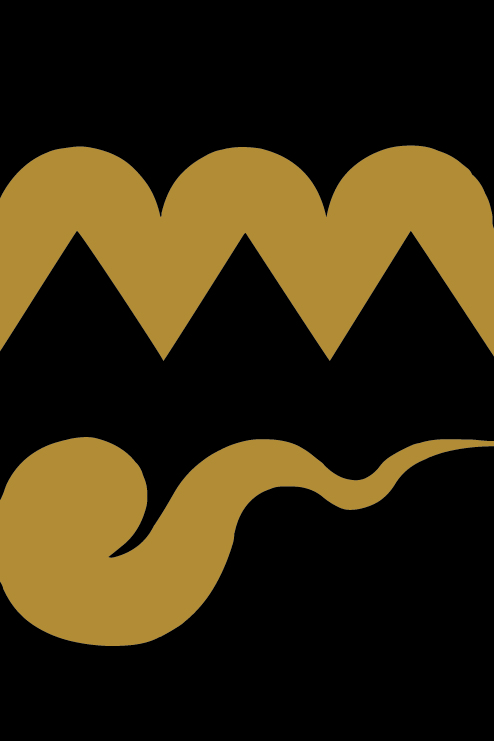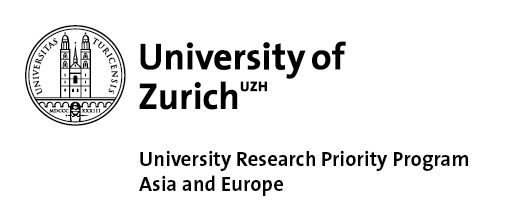Navigation auf uzh.ch
Navigation auf uzh.ch
The symposium will take place at the University of Zurich main building (Zentrum, Rämistrasse 71, 8006 Zurich) on
Friday, 18th March 2016 in room KOL-F-118
Saturday, 19th March 2016 in room KO2-F-152
The symposium is free and open to the public, no registration is necessary.
The purpose of the symposium is to look at the phenomenon of Japanese katagami textile stencils from various angles. Through discoveries in the last decade, thanks to the pioneering work of Akiko Mabuchi, Yuki Ikuta, and others, we have come to understand that the historical relationship between katagami and the western world has been profound, both in number and in the intensity of their receptions. Nonetheless, during much of the 20th century katagami have been almost entirely neglected by western curators and scholars, as hundreds of thousands continue their sleep in museum storages. One of our purposes is to resurrect this forgotten relationship and to understand the extent of katagami collections in the West and their receptions by western artists and designers. Among the topics discussed will be:
Building on successful exhibitions in Paris (2006), Vienna (2009), Dormagen (2011), Hamburg (2011), Dresden (2014-5), Textile Museum of St Gallen (2014), Historical and Ethnographic Museum of St. Gallen (2014-15), and above all, the ground-breaking Katagami Style exhibition in Japan (2012), the topic of the katagami has become an up-and-coming topic with great scholarly and popular potential, both within academia and the museum world.
We hope to see the various problems related to the katagami from western perspectives as well as those of Japan. For this reason we have invited leading scholars from Japan, Europe, and USA. In addition, we hope to have reports on individual collections in the West and in Japan and plan to have an excursion following the symposium in order to visit one or more katagami collections in Switzerland.
The collections of the katagami are truly phenomenal in number. Large collections of ten thousand sheets or more have been found in Dresden, Vienna, and Aarau, and other collections pepper the landscape: in Switzerland there are important collection in, for example, Bern, St Gallen, Basel, Zürich, and Aarau. They are also numerous examples in nearby textile centers such as Lyon and Mulhouse. In fact, it is unusual for European museums – especially those of arts and crafts – not to have collection of katagami in their storage.
We hope to show that, although Japanese woodblock prints are often given sole credit for receptions of Japanese art in the west, the katagami held at a time, just as important roles as transmitters of Japanese art and design. We hope to resurrect the roles, the receptions, and the histories of these objects in this symposium, which marks the first international symposium on the topic.
9:00 – 9:20 Registration
9:20 – 9:30 Welcome from the Organizer
Prof. Dr. Hans Bjarne Thomsen (Section for East Asian Art,
University of Zurich)
with Natasha Fischer-Vaidya, lic. phil. (Section for East Asian Art,
University of Zurich)
9:30 – 11:30 Panel 1: Katagami and European Art Currents
Chair: Marie Kakinuma, lic. phil. (Institute of Art History,
University of Zurich)
Akiko Mabuchi, M.A. (Director, National Museum of Western Art, Tokyo)
Japonisme Designs and Katagami in the Circle of S. Bing
「S.ビング周辺の型紙とジャポニスム・デザイン」
Yuko Ikeda, M.A. (Senior Curator, The National Museum of Modern Art, Kyoto)
Katagami Collections in Germany -‐‑ Vorbilder as Official Strategy
「ドイツの型紙コレクション-政策としての収集活動」
Stephanie Gruber Bachmann, lic. phil. (Section for East Asian Art, University of
Zurich)
Henry van de Velde and the Influences of the Katagami: Their Patterns in His
Textiles, Wallpapers and Tiles
Prof. Dr. Yoko Takagi (Bunka Gakuen University)
Katagami, Visual Analogy, and Cross-‐‑Culturalism
11:30 – 11:45 Coffee break
11:45 – 13:15 Panel 2: Ryūkyū Bingata and Basel Katagami
Chair: Brigitte Huber, lic. phil. (Section for East Asian Art,
University of Zurich)
Prof. Dr. Yoshikuni Yanagi (Okinawa Prefectural University of Arts)
Categorizing Bingata Katagami Using Databases and Infra-‐‑Red Light Surveys
「紅型型紙分類のためのデータベース構築と赤外線調査」
Dr. Minako Hirata (Research Assistant, Okinawa Prefectural University of Arts)
Characterstics of Bingata Katagami Design Construction
「紅型型紙における模様構成の特徴」
Alessandra Lardelli, M.A. (Section for East Asian Art, University of Zurich)
The Bingata Katagami of the Jaap Langewis Collection at the Museum der Kulturen
Basel (MKB)
13:15 – 14:15 Lunch
14:15 – 16:15 Panel 3: Research Topics in European Katagami Studies
Chair: Xenia Piëch, M.A. (Section for East Asian Art,
University of Zurich)
Dr. Marjan Groot (VU University Amsterdam and LUCAS Leiden University
Center for the Arts in Society)
Women and Katagami
Dr. Johannes Wieninger (Curator, Austrian Museum of Applied Arts)
The Katagami Collection at the MAK Vienna: Its History and Impact
Geneviève Lacambre (Honorary Curator and Project Manager, Musée d’Orsay)
Transformation of the Textile Industry in Meiji Japan and the Availability of Katagami
Laura Palicova, B.A. (Section for East Asian Art, University of Zurich)
Katagami as Inspiration – Interiors as a Link between Japanese and Western Culture
16:15 – 16:30 Coffee break
16:30 – 18:30 Panel 4: Katagami and Textile Research in Japan
Chair: Dr. Khanh Trinh (Curator, Museum Rietberg, Zurich)
Dr. Masako Maezaki-Yamamoto (Research Fellow, JSPS Japan Society for the
Promotion of Science)
The Present State of Kyoto Yuzen Stencils: Results from
the Ritsumeikan University Kyoto Yuzen Project「京都・型友禅の現状―立命館大
学の京友禅プロジェクトからみえてきたもの」
Dr. Monica Bethe (Director, Medieval Japanese Studies Institute, Kyoto,)
Where Word Meets Image and Action: Katagami Video Subtitles, Glossary, and
Research Notes (Presented by Prof. Thomsen)
Prof. Dr. Keiko Suzuki (Ritsumeikan University)
Present-day Katagami in Kyoto’s Textile-printing Industry
Dr. Mizuho Kamo (Ritsumeikan University)
Examining Digital Archiving Strategies of Katagami through the Prism of a Private
Kyoto Collection 「型紙コレクションのデジタルアーカイブを通じた一考察―京都
の個人コレクションを中心に」(Presented by Prof. Suzuki)
18:30 – 18:45 Short break
18:45 – 19:00 Welcoming Speeches
Misumoto Horii, First Secretary, Embassy of Japan in Switzerland
Prof. Dr. Thomas Hengartner (Vice-Dean for Research,
Humanities Division, University of Zurich)
Thomas Isler, President, Zürcherische Seidenindustrie Gesellschaft
19:00 – 19:45 Keynote speaker
Yuki Ikuta (Mie Prefectual Art Museum)
Katagami: Beyond Rationality and Anonymity
19:45 ~ Reception (Foyer West)
9:00 – 10:30 Panel 5: Katagami Collections and Receptions in Switzerland I
Chair: Natasha Fischer-Vaidya, lic. phil. (Section for East Asian Art,
University of Zurich)
Dr. Alban von Stockhausen (Curator, Bern Historical Museum)
The Katagami Collection of the Bernisches Historisches Museum
Jeanne Fichtner-Egloff, lic. phil. (Curator, HVM St. Gallen)
The Katagami Collection of the Historical and Ethnological Museum in St. Gallen
Dr. Julien Glauser (Curator, Musée d'ʹethnographie Neuchâtel)
Katagami as Part of the Japonism in Neuchâtel
10:30 – 11:00 Coffee break
11:00 – 12:30 Panel 6: Katagami Collections and Receptions in Switzerland II
Chair: Anna Hagdorn, M.A. (Section for East Asian Art,
University of Zurich)
Andrea Voellmin, lic.phil. (Director, Library and Archive Aargau)
The Katagami Collection of the State Archives, Canton Aargau in Aarau, Switzerland
Stephanie Lovász (Curator, Basel Museum of Cultures)
Katagami and Katazome Objects from the Collection of the Museum der Kulturen,
Basel
Michèle Grieder, lic. phil. (Section for East Asian Art, University of Zurich)
To Be Continued -‐‑ The New Katagami Collection in the Textile Museum St. Gallen
12:30 – 13:30 Lunch
13:30 – 15:30 Panel 7: European and Japanese Connections in
Katagami Research
Chair: Prof. Dr. Birgitt Borkopp-‐‑Restle (The Werner and Margaret
Abegg-‐‑Chair for the History of Textile Arts, University of Bern)
Prof. Dr. Alexis Schwarzenbach (Lucerne University)
The Aarau Katagami. Acquisition and Local Use, ca. 1890 – 1914
Prof. Dr. Kazuto Sawada (National Museum for Japanese History)
The Chūgata and Komon in Modern Japan: Why Japan Let Go of Its Katagami
「近代日本における小紋と中形ーなぜ日本は型紙を手放したのか」
Prof. Fumi Matsubara (Kyoto Seika University)
Japanese Textiles that Decorated Western Interiors: Embroideries, Dyed and Woven
Textiles, and Katagami
「西洋の室内装飾を彩った日本のテキスタイル―刺繡・染・織、そして型紙―」
Prof. Tina Moor (Lucerne University)
Katagami or the Harmony of Figure and Ground
15:30 – 16:15 Workshop and coffee break
Moderator: Prof. Dr. Hans Bjarne Thomsen (Section for East Asian Art,
University of Zurich)
Workshop on the Topic of Archiving Katagami: Problems with
Cataloguing, Describing, and Storing Large Katagami Collections
16:15 – 17:45 Panel 8: An European Case Study: The German Textile Museum,
Krefeld
Chair: Prof. Dr. Bettina Gockel (Institute of Art History,
University of Zurich)
Dr. Isa Fleischmann-‐‑Heck (Deputy Director, German Textile Museum Krefeld)
„Exotic inspiration“ – Friedrich Deneken and the History of Katagami Collections in
the Museums of Krefeld/Germany
Dr. Claudia Delank (Independent Curator and Scholar for Japanese Art, Berlin)
Artist Designs for the Silk-‐‑Industry, Katagami and Japonisme in Krefeld around 1900
Walter Bruno Brix (Author, Curator, and Textile Expert)
From Tiny to Minute: The Edo komon in the collection of the German Textile Museum
Krefeld
17:45 – 18:45 Panel 9: European Collections and Receptions
Chair: Alina Martimyanova, M.A. (Section for East Asian Art,
University of Zurich)
Dr. Markéta Hánová (Curator, Art of Asia and Africa, National Gallery in
Prague)
Towards Abstract Decorative Ornament: The Impact of Japanese Katagami Paper
Stencils on Czech Art and Design
Dr. Alice Kraemerová (Curator Emerita, Náprstkovo Museum, Prague)
Katagami Design Symbols in the Naprstek Museum
The symposium is made possible by the generous support of
Zürcherische Seidenindustrie Gesellschaft (Zurich Silk Association)
Toshiba International Foundation
National Museum of Japanese History (Rekihaku)
National Institutes for the Humanities
University of Zurich, URPP Asia and Europe




